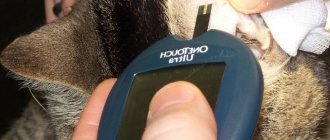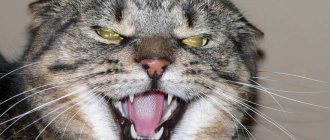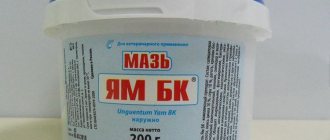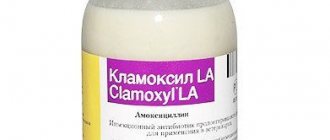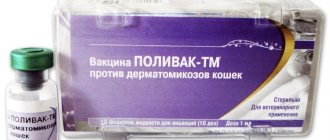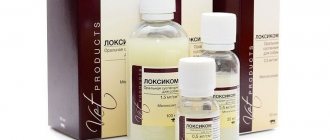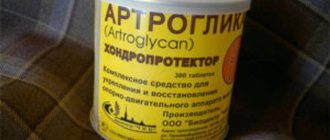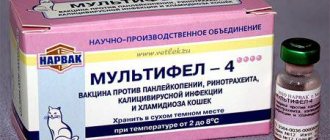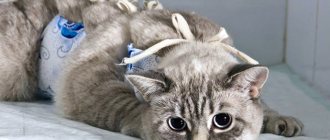Vermidin is an effective anthelmintic that can be used for cats for therapeutic and prophylactic purposes. The development was carried out by specialists from the Russian company. The medication is characterized by safety, since the ratio and concentration of the active components in it were calculated specifically for cats.
general description
Vermidin is a small tablet size. Their weight is only 0.3 g. Due to their small size, the drug is convenient to give to pets of different sizes, including kittens. Small, light yellow tablets may have a greenish tint. Its presence, as well as inclusions, are the norm.
Tablets are packed in blister packs of 2 pieces. The manufacturer places 30 such blisters in a cardboard box. There is no need to buy packaging at the pharmacy, since the blisters are sold individually, so you can easily purchase the required number of tablets, taking into account the number of pets and the weight of each animal (provided that you have several cats in your house).
Important! Do not give cats Vermidin intended for dogs, as it has a higher concentration of active ingredients, which can cause an overdose. Be careful when purchasing the drug at the pharmacy.
Diagnosis of gastritis in cats
Since gastritis can be a consequence of other diseases, the diagnosis must be thorough in order to find out the cause of the disease and prescribe adequate and effective treatment. This is especially true for cats that regularly suffer from gastrointestinal disorders.
To diagnose gastritis in cats use:
- examination of the animal;
- taking anamnesis;
- Analysis of urine;
- blood analysis;
- Ultrasound of the gastrointestinal tract;
- determination of gastric juice acidity.
In severe cases of the disease, the following is used to diagnose gastritis:
- X-ray with contrast agents;
- endoscopic examination;
- biopsy.
Composition and action
The combined anthelmintic is successfully used to kill roundworms and tapeworms. Moreover, the effectiveness of the drug is in no way related to the stage of development of the parasites. The active components affect not only adults, but also larvae.
Vermidin contains praziquantel and pyrantel pamoate. These chemicals are included in many anthelmintic drugs because they combine relative safety and effectiveness. The substances complement each other, thereby providing a wide spectrum of action. Praziquantel does an excellent job of killing tapeworms. It disrupts the energy metabolism of parasites, provokes malfunctions in the muscular system, which inevitably leads to their death.
Pyrantel, on the contrary, is effective against nematodes (roundworms). It has a similar principle of action, but is practically not absorbed into the bloodstream. It concentrates in the intestines. Praziquantel is characterized by rapid penetration into the bloodstream - in just a couple of hours the concentration will reach its maximum value.
According to the accepted state classification, Vermidin belongs to moderately hazardous substances. It is believed that if the recommended dosages are observed, it is not capable of causing harm to the animal, affecting the functioning of the liver and other organs, or causing mutations in the offspring. Still, it is worth remembering that it contains toxic substances, so if you have health problems, it is better to consult a doctor.
Interaction with other drugs
Ranitidine (analogs and substitutes cannot be used simultaneously with drugs based on the same active substance) can be used in combination with certain medications. But only in consultation with your doctor.
The use of the drug in combination with analogues is not allowed. With the simultaneous administration of antacid drugs, there is a deterioration in the absorption of Ranitidine in the digestive tract. Use with drugs that affect blood glucose levels is not recommended.
It is worth remembering that the effectiveness of anticoagulants when used simultaneously with Ranitidine may be significantly reduced. The drug also inhibits the absorption of ketoconazole-based antifungal medications into the body. The absorption and effectiveness of loop diuretics is increased when administered concomitantly with an antiulcer drug.
During therapy with Ranitide and the use of cyclosporines, an increase in the concentration of the latter in the blood is observed. When taking any medications, you should first check with your doctor about the possibility of combining them with the main therapy.
When to use
According to the instructions, Vermidin for cats is used to treat pathologies caused by the following parasites:
- toxocara;
- cucumber tapeworm;
- bovine tapeworm;
- roundworms;
- echinococci;
- alveococci, etc.
The medicine can also be successfully used to treat helminthic infestations, in which both roundworms and tapeworms live in the animal’s body.
It is also suitable for preventing infection with the parasites listed above. When used regularly, it can provide reliable protection. Can be used for deworming before vaccinations or mating.
Forms of gastritis in cats
Acute gastritis, as I mentioned above, develops suddenly. The gastric mucosa becomes swollen and reddened. Increased secretion of mucus begins, which prevents food from interacting with gastric juice. As a result, it is not the breakdown of food that occurs, but its fermentation and rotting and, as a result, decay products and gases that poison the animal’s body are formed.
With chronic gastritis, constant specific changes occur in the cat’s body, namely: the formation of gastric juice is disrupted, either its insufficiency occurs or, on the contrary, hypersecretion; the walls of the mucous membrane are damaged, and the vessels in the stomach become fragile, which carries the risk of bleeding.
Uremic gastritis in cats is a consequence of kidney disease. When the kidneys fail to cope with their work, the body itself begins to be poisoned by the products of protein metabolism. Urea accumulates in the gastric juice, which leads to uremic gastritis.
Eosinophilic gastritis rarely develops in cats and is caused by allergies, the presence of artificial dyes in food, medications, etc. With this type of gastritis, the stomach becomes inflamed due to the accumulation of eosinophils in the mucous membrane. Eosinophils are blood cells that sharply increase in the body during allergic conditions and helminthic infestations.
When a cat has gastritis, the acidity of the gastric juice may change; as a result, gastritis can be with high, low or normal acidity. This is a very important factor when prescribing treatment.
How to use
The instructions for use indicate that Vermidin tablets should be given to cats in the morning, before or during feeding. Food does not affect the effectiveness of the drug. There is no need to follow a starvation diet before deworming. It is best to hide the tablets in the food. Absolutely any food is suitable for these purposes.
The dosage is calculated according to a simple scheme - one tablet weighing 0.3 g is calculated for 3 kg of animal weight. To prevent an overdose, weigh your pet before deworming.
For both treatment and prevention, Vermidin is given once. The exception is severe infestations. In this case, the procedure should be repeated after 10 days.
For prophylaxis, the drug is used once a quarter. The recommended regimen must be followed for all animals, including those that live in the house and are never outside. Lack of walking outside does not guarantee that the animal will not become infected with parasites. Worms can enter his body along with food, through people's shoes or clothing, and in other ways.
After deworming, there is no need to give the animal a laxative or an enema. The fact is that the components included in the composition contribute to the release of worms. Thanks to this, they do not decompose inside the pet and do not poison it with toxins. With severe infestations, the body may not have time to cope with the removal of parasites, so it may be necessary to take additional medications.
Overdose
If the dosage prescribed in the instructions is exceeded, the animal may experience convulsions and disturbances in the rhythm of the heartbeat. Treatment in such cases is symptomatic.
Ranitidine is a medicine that is essential for the treatment of gastric or duodenal ulcers. Being at the same time the most accessible and quite effective, it has gained popularity both among family doctors and among specialists (the drug is often used in surgery before surgical interventions in order to prevent the reflux of gastric contents into the respiratory tract).
The mechanism of action of Ranitidine is directly related to the blocking of histamine receptors that are located in the stomach. This leads to a significant reduction in the secretion of hydrochloric acid and prevents further destruction of the mucous membrane. This property allows it to be taken both for medicinal purposes and for prophylactic purposes.
The official instructions for the drug Ranitidine do not indicate any negative effects that could significantly affect the health of patients. Numerous studies involving laboratory animals have not revealed a single case of carcinogenic or mutagenic effects. Of course, there is a certain danger associated with its use at the recommended dose or abrupt withdrawal, but this only concerns the exacerbation of the current disease.
An overdose of Ranitidine has not been described to date. Possible increased side effects.
Existing restrictions
The content of active ingredients is carefully calculated, so Vermidin is considered a safe anthelmintic. But it contains strong toxic substances, and therefore in some cases it is better to avoid its use. Such cases include:
- infectious diseases;
- exhaustion;
- weakening as a result of acute or chronic pathologies;
- lactation period;
- pregnancy.
If you have liver or kidney diseases, you should consult a doctor, as an anthelmintic may aggravate the disease. You should absolutely not use the medicine if you are intolerant to the components. If intolerance to praziquantel or pyrantel has previously been noticed (even when using other drugs), it is worth choosing a medicine with a different active ingredient. If an allergy appears for the first time, give your pet an anti-allergy remedy. The doctor can also select medications to relieve symptoms.
Note! Vermidin should not be used on kittens under 3 weeks of age.
Analogues of the drug
Sereniya is an effective and fairly safe drug against nausea and vomiting. The only disadvantage of this product is its high price - a 20-ml bottle of injection solution costs about five thousand rubles, and a package of four tablets costs about a thousand.
Serenia tablets can be purchased individually
True, in veterinary pharmacies you can usually buy tablets individually, and in some pharmacies they offer to buy not the entire bottle of solution, but to draw the required dose into a sterile syringe - but in this case there is a high risk of purchasing an expired product.
There are no complete analogues of Serenia. However, there is a fairly large selection of antiemetic drugs, primarily intended for people. After consulting with a veterinarian, you can choose a suitable remedy for your pet, which will cost significantly less than Serenia.
Table: antiemetics that can replace Serenia
| Drug name | Compound | Therapeutic purpose | Contraindications | Possible side effects | Estimated cost |
| Cerucal |
| nausea and vomiting of various origins |
|
| 1000 rubles for 10 ampoules of 2 ml solution for injection |
| Metoclopramide |
|
|
|
| 80 rubles for 10 ampoules of 2 ml of 0.05% solution for injection |
| Ondansetron |
|
|
|
| 150 rubles for 5 ampoules of 2 ml for injection |
| Chlorpromazine |
|
|
| lethargy; decreased appetite; convulsions; depression; heart rhythm disturbances; manifestations of allergies | 100 rubles for 10 ampoules of 2 ml solution for injection |
Photo gallery: functional analogues of the drug Serenia
Metoclopramide is the main active ingredient of the drug Cerucal of the same name, which is widely used as an antiemetic for humans and animals. Chlorpromazine relieves gagging and enhances the effect of analgesics.
( 1 rating, average 5 out of 5 )
Side effects
If you follow the instructions, the anthelmintic does not cause side effects. The exception is cases of intolerance to components. In this case, there is a high risk of an allergic reaction. It can manifest itself in a variety of ways, from skin reactions and itching to vomiting and diarrhea.
In case of overdose, the following symptoms occur:
- depressed state;
- apathy, low mobility;
- refusal of food;
- vomit;
- diarrhea;
- increased salivation.
If the listed symptoms are noticed, it is better to rinse the animal’s stomach. For vomiting or diarrhea, symptomatic therapy is also used.
special instructions
When treating ulcerative lesions of the digestive tract, it is worthwhile to simultaneously follow a therapeutic diet. This will reduce the negative impact on the mucous membranes. It is important to avoid smoked, sour and spicy foods. Such products increase the production of hydrochloric acid and slow down the healing process.
In addition, tablet therapy should be agreed with a specialist. When using the solution, negative reactions manifest themselves in an acute form, so it is administered only by specialists in a medical facility.
It is important to exclude the presence of oncological pathologies of the digestive tract before prescribing any dosage form of the drug. It is strictly contraindicated to self-administer the medication, increase the prescribed dose, or extend the therapeutic course.
Owner reviews
Victor, owner of a Siberian cat:
“Protecting an animal from worms is the direct responsibility of the owners. We chose Vermidin for our cat. The tablets are cheap, but they do their job well. The cat underwent deworming without any problems or complications. By the way, there was no need to torture him; the crushed tablets were easily hidden in his morning breakfast. The only drawback is that when purchasing one blister, instructions for use are not included. I had to use the help of the Internet.”
Anna, owner of a 4-year-old cat:
“Every summer we go out of town. We take the cat with us too. Since there is a high risk of catching parasites at the dacha, we make sure to carry out deworming. We have already tried medications of different price categories. This summer we bought Vermidin. It costs a penny (the cheapest medicine of all that we tested), but provided good protection against worms. I’m thinking about using it all the time.”
Indications for use
The main indication for prescribing Ranitidine tablets to cats is the need to reduce the acidity of the environment in the stomach for various diseases of the digestive system and for their prevention:
- Ulcers of the stomach and duodenum, provoked by prolonged treatment with medications to combat inflammatory processes.
- For therapeutic and prophylactic purposes in case of exacerbations of peptic ulcers of the digestive system.
- For course treatment of gastritis.
- During rehabilitation in postoperative periods.
- To prevent recurrent effects of bleeding in the stomach or esophagus.
Instructions for use of Ranitidine for cats prescribe the use of an injection solution in the same cases as tablets, including the following::
- duodenal ulcer of infectious bacterial origin;
- prevention of aspiration of gastric juice during surgical operations using anesthesia.
Contraindications
The main indication for prescribing Ranitidine tablets to cats is the need to reduce the acidity of the environment in the stomach for various diseases of the digestive system and for their prevention:
- Ulcers of the stomach and duodenum, provoked by prolonged treatment with medications to combat inflammatory processes.
- For therapeutic and prophylactic purposes in case of exacerbations of peptic ulcers of the digestive system.
- For course treatment of gastritis.
- During rehabilitation in postoperative periods.
- To prevent recurrent effects of bleeding in the stomach or esophagus.
Instructions for use of Ranitidine for cats prescribe the use of an injection solution in the same cases as tablets, including the following:
- duodenal ulcer of infectious bacterial origin;
- prevention of aspiration of gastric juice during surgical operations using anesthesia.
Before using the drug "Ranitidine" for your cat, you must carefully read the list of contraindications when the use of the product is prohibited:
- during pregnancy and lactation;
- kittens;
- in case of individual intolerance to the components of the drug;
- use carefully, under the supervision of a physician, for chronic renal failure (CRF) and liver diseases.
- Treatment and prevention of ulcerative lesions of the stomach and duodenum in the acute phase;
- Erosive inflammation of the esophagus;
- Prevention of ulcerative lesions of the stomach and duodenum in the postoperative period;
- Inflammation of the esophagus caused by the backflow of food;
- Prevention of bleeding from the upper digestive system;
- Prevention of penetration of gastric juice into the respiratory tract while patients are under anesthesia.
- Individual intolerance to Ranitidine and its components;
- Pregnancy and lactation;
- Use in pediatric patients;
- Hypersensitivity to Ranitidine and its components.
